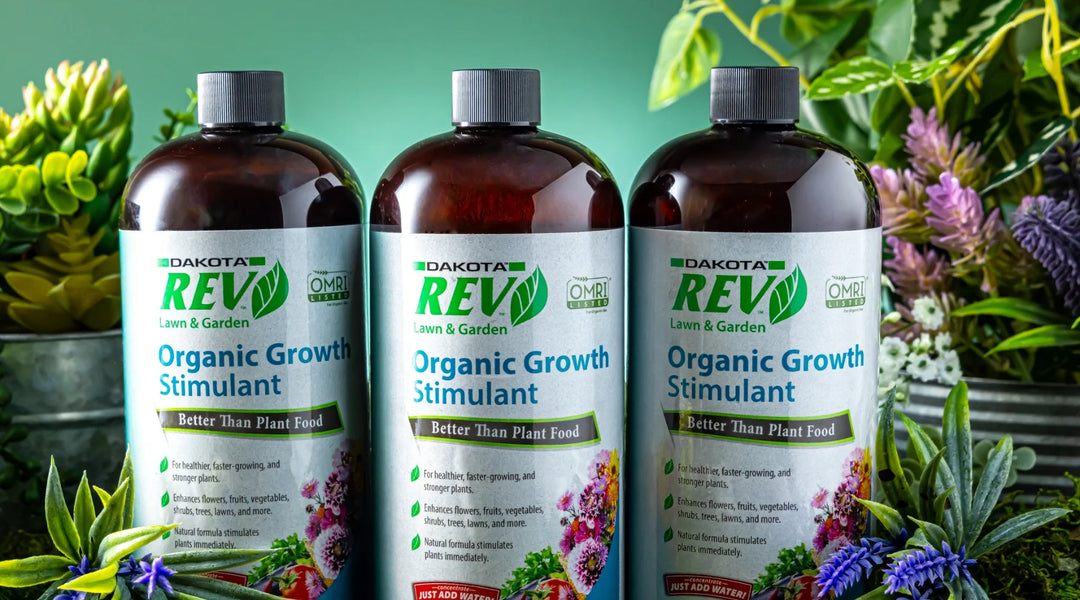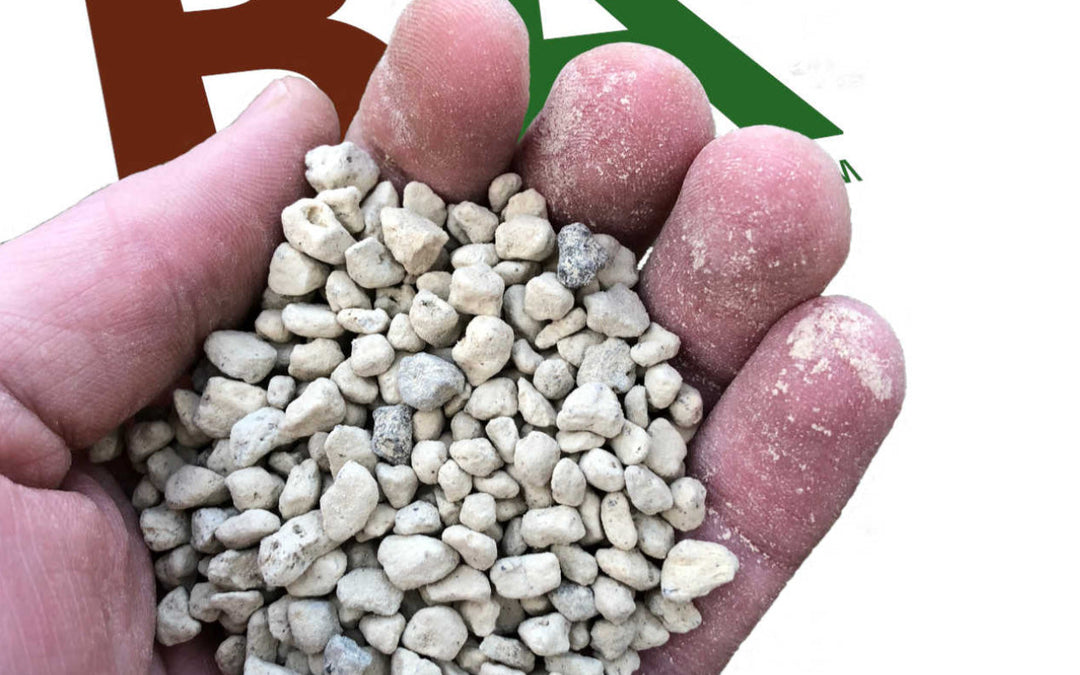How to Choose the Right Natural Weed Killer
If growing the perfect, lush yard was easy, everyone would do it. You have to consider several things when keeping your lawn looking its best, but today we're going to walk you through choosing the right natural weed killer for your grass. When you follow our steps, you can be on your way to a beautiful green yard that will make you the envy of your neighbors.
Types of Weeds
The first step in choosing the right weed killer is knowing what variety of weeds you're trying to prevent or kill. What works on one weed may be useless on another type.
There are three categories of weeds to help you narrow down your search:
- Grassy weeds
- Broadleaf weeds
- Grass-like weeds
Grassy weeds are similar to grass in appearance. Their leaves look like blades of grass, and they grow individually. Grassy weeds include quackgrass, crabgrass, goosegrass, and foxtail.
Broadleaf weeds are difficult to confuse with grass because of their broad, flat leaves.
This type of weed grows in soil that lacks specific essential nutrients and comes in three different types:
- Annual
- Biennial
- Perennial
The difference between annuals, biennials, and perennials is the length of time that they live. Annuals only live for one year, biennials live for two years, and perennials live anywhere from three years to three hundred years (or more!).
Broadleaf weeds include dandelions, clover, oxalis, thistle, ground ivy, dollarweed, and chickweed.
Grass-like weeds are similar to grass but with a notable exception. Instead of having flat leaves, these weeds are more triangular or tubular and include nutsedge, garlic, and wild onion.
Understanding Natural Weed Killer Labels

Once you determine the type of weeds you are treating or preventing, the next step is understanding the definitions on product labels. Again, background knowledge of what you're looking at will help you find the best natural weed killer for your yard. The four words you will hear most frequently are:
- Selective
- Emergence
- Translocation or Systemic
- Persistence
Outside of definitions, the other factors to keep in mind when selecting a natural weed killer are the speed at which you need or want it to work and the location you're using the product.
Maybe you have been surprised by weeds and need to clean up your yard before a big event. Or you want to treat weeds in your garden but protect your crops. All of that is possible with the various types of natural weed killers.
Types of Weed Killer
Weed killers can be organic or non-organic. Natural weed killers typically fall under the organic category and are known for being more friendly to kids, animals, and the environment, while non-organic are typically made with harsh chemicals that can negatively impact water runoff and be harmful to your skin, animals, and children if exposure occurs.

As supporters of responsible agriculture, we will focus on natural weed killers for this blog. Here are the most significant differentiations to consider when selecting a weed killer:
- Pre-emergent or post-emergent
- Systemic or topical
- Selective or non-selective
- Persistent or non-persistent
Pre-Emergent or Post-Emergent Weed Killers
Emergence in weed killers refers to when the product works. If you already have weeds and are trying to kill them, this difference won't matter much to you. Pre-Emergent weed killers target the seeds before they sprout. If you're targeting weeds during this stage, aim to apply your natural weed killer between two and three weeks before germination.
Once the plants have begun to grow, you'll need to select a post-emergent spray weed killer. A post-emergent weed killer targets weeds while they're actively growing and are applied directly to the leaves of the plants. If you use a pre-emergent weed killer spray, it may be worth going back over the area with a post-emergent product to ensure you're as thorough as possible.
Systemic or Topical Weed Killer Spray
If you want to kill the entire weed, choosing a systemic weed killer is your best bet. Topical herbicides are designed to kill the areas of the plant where it is directly applied, while systemic spray weed killers are made to kill the entire plant down to the roots.
Systemic natural weed killers can also be referred to as translocated herbicides. Translocation is the method that plants use to distribute water and other materials throughout the roots and leaves.
Selective or Non-Selective Weed Killers
When researching the right weed killer, the most crucial part may be deciding on selective or non-selective. A selective weed killer spray is designed to kill only certain portions of a plant or certain plant types.
Non-selective weed killer is the opposite and is precisely what the name implies. This type of sprayable weed killer is designed to kill anything it comes into contact with, meaning that you must be exceptionally careful when applying it, or else you could kill your grass, garden, and more.
If you have dandelions sprouting up in the grass throughout your backyard, you will use a selective herbicide spray to target the dandelions without harming the grass. However, if you want to kill all of the weeds growing in the cracks around your sidewalk or driveway, you will choose a non-selective natural weed killer instead.
Persistent or Non-Persistent
Like non-selective spray weed killers, the name is a giveaway on the properties of this style. Persistent weed killers stick around and help prevent future weeds from infiltrating your space, while non-persistent weed killers are a one-time use. Your selection depends on the ultimate goal of the area where you're spraying weed killer, so be sure to consider the future before making your choice.
Weed Killer Applications
Once you've selected the correct type of natural weed killer, you need to decide how to apply it. The two most common application methods are:
- Spray weed killer
- Granular weed killer
Weed Killer Sprays
Natural weed killer spray is applied using a sprayer to spread the liquid over the plants or ground's surface. For small areas, you can purchase a pre-mixed weed killer spray. This application makes it easy to spray places like your patio, front walkway, or rogue weeds in a small backyard garden.
For larger applications such as a yard or larger farm, or if you prefer to be more in control of the process, multiple solutions can be diluted and applied through a spraying weed killer backpack or a handheld compression sprayer. If you plan on using a liquid that you must dilute before using, you must read and follow the directions precisely as they are written to avoid harming yourself, your plants, or the environment.
Don't mix more spray weed killer than you need at one time. You can always make more, and storing pre-mixed spray is dangerous. Also, be sure to clean your natural weed killer sprayer before and after each use.
Of course, we always recommend using a dedicated sprayer for your natural weed killer and not mixing other products to avoid cross-contamination. Still, thorough cleanings also help remove any dust or other residues that may have accumulated during storage.
Granular Natural Weed Killer
The second type of natural weed killer is granular. This type of weed control is distributed using a spreader, making it convenient for applying across a large area such as your yard. Granular weed killers can also be mixed with dry natural fertilizers and spread together, which many homeowners enjoy because it kills two birds with one stone – controlling weeds and nourishing the yard simultaneously.
How to Prevent Weeds
The best way to kill weeds is to prevent them from growing in the first place. There are three main things you can do to create an environment that will repel weeds:
- Keep your grass longer
- Water less frequently but more heavily
- Keep your grass healthy
Weeds and Grass Height
Keeping your grass on the taller side will help prevent weeds by robbing the seeds of the sunlight they need to grow. Although this may seem like an excuse to spread your mowing, that's not the case.
Instead of using your lawn mower less frequently, adjust the settings to keep the grass longer. We recommend using the first or second highest setting and sticking to the same mowing schedule that you would if you kept your grass shorter.
Yard Watering Schedule for Weed Prevention
Adjusting your watering schedule is the second way to set your yard up for success. Weeds tend to grow when robust root systems have not been established. To encourage deep, strong root growth for your grass, spread out your watering schedule but increase the amount you're watering. Allowing the water to penetrate deeper will help the roots take hold and make it harder for weeds to grow.
Will Fertilizer Help with Weeds?
Although it may seem counterintuitive, supplementing the nutrition of your grass and soil with fertilizer and other soil-building supplies will help prevent the need for weed killer. Lawns are similar to humans in that we are most successful in fending off illness when we are healthy. If your lawn is stressed, take the time to test your soil and determine what nutrients are missing so you can add a supplement.
Benefits of Choosing a Natural Weed Killer
Natural weed killer isn't only for shoppers who have children and pets to look out for. Choosing a natural weed killer is a fantastic choice for anyone who wants to be more aware of the types of chemicals that they're using in their everyday lives, as well as farmers who want to keep pesticides away from their crops.
Another benefit of choosing a natural weed killer over a chemical alternative is its versatility. Many municipalities are placing restrictions on the type of products that can be used in public places, and pesticide bans are in place in many common areas we frequent, including:
- Playgrounds
- Parks
- Cemeteries
- Golf courses
- Athletic fields
How Much Weed Killer Do I Need?
Once you've determined the kind of weeds you want to kill, the style of natural weed killer you want to use, and any other properties, it's time to calculate how much product it will take to cover the area required. Consider whether or not you will need multiple applications and always overestimate rather than underestimate.
Most weed killer sprays come in multiple sizes, allowing customers to customize their treatment program. For example, a small bottle of natural weed killer spray is suitable for a few small areas like a patio, driveway, or sidewalk in front of your home, while larger weed killer concentrates are a good choice for farmers or someone purchasing for a business or even a municipality.
When to Use Organic Weed Killer

Weeds can pop up any time of year. The best time to apply a natural weed killer is when the plants grow the most, usually during the spring and fall. Treating weeds when they are growing helps kill them more quickly because the weed killer is absorbed faster than during other times.
Where to Buy Natural Weed Killer
Whether you're a farmer with hundreds of acres or a backyard gardener with a green thumb, it doesn't matter. However, deciding where to buy your weed killer is an important choice. Consider the following when deciding where to purchase your weed killer spray, granules, or accessories:
- Expertise of staff
- Environmental impact
- Scientific research
When you're shopping, can you find the answers to your questions? Is there a phone number you can call or a chat feature on the company's website? Having the ability to connect with someone is a great perk when shopping for gardening supplies.
If you're shopping for natural weed killer, chances are you're at least somewhat passionate about the environment. Taking time to understand where a company stands on environmental impact and how its products support or harm that stance will help determine if you're shopping in the right place.
Unless you're a scientist with a background in herbicides, you're probably relying on the expertise of the company you're purchasing from to understand the products they offer. Find a company that has tested its products and stands by its results.
Shopping with Rocky Mountain BioAg®
At Rocky Mountain BioAg®, these factors are a no-brainer. Our team is always here to help our customers find exactly what they need. With a focus on organic and sustainable farming, our products reflect our commitment to leaving the world better than we found it. Plus, we're backed by years of research and collaboration with some of the leading scientists and manufacturers in the country.
No matter the size of your project, Rocky Mountain BioAg® can help you find and apply the right natural weed killer for you.










Leave a comment